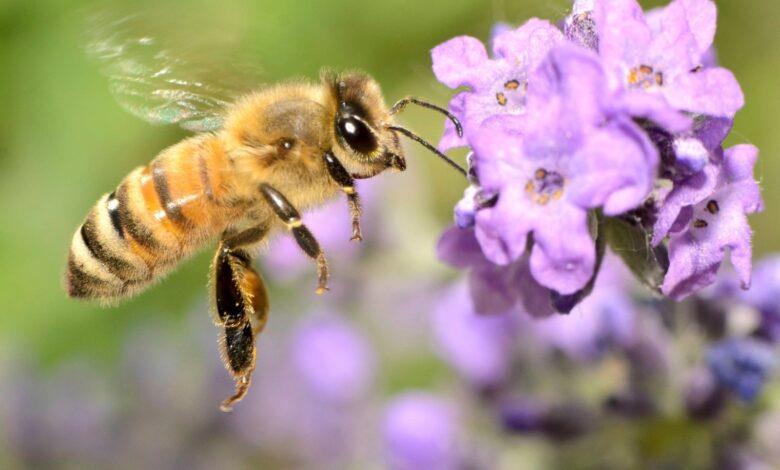(MENAFN- Tribal News Network) Rifaqatullah Razarwal Peshawar: On the occasion of the International Day of Honey Bees, celebrated worldwide, including Pakistan, beekeepers, and honey business traders in Khyber Pakhtunkhwa are urging the government to take necessary steps to expand the honey industry and facilitate access to international markets.
The All Pakistan Honey Bee Exporters Association has emphasized the importance of promoting the honey business, protecting bees , and tapping into global markets.
A meeting was held today at Tarnab Farm in Peshawar, bringing together beekeepers and traders associated with the honey industry. Sheikh Jahan Badshah, Vice President of the All Pakistan Honey Bee Exporters Association, highlighted that Khyber Pakhtunkhwa leads in honey production, with approximately 30,000 honey farms employing around 1.6 million people. The annual honey production in the province reaches up to 10,000 metric tons, accounting for 33% of the country's total output.
Also Read: another blow to pti as former health minister hisham inamullah khan bids farewell
Challenges faced by beekeepers and entrepreneurs were discussed during the meeting, including issues related to bee transportation, delays at the border due to security concerns, and adverse effects of high temperatures on the bees during delivery.
Sheikh Jahan expressed disappointment over the lack of government policies and efforts to facilitate access to foreign markets for honey. He emphasized the urgency of addressing these concerns, as foreign markets are slipping away, and called on the government to recognize the significant contribution of honey exports to the country's economy.
He further explained that Khyber Pakhtunkhwa's honey traders traditionally relied on neighboring Afghanistan, but with the closure of routes through Nawabpas, Tari Mengal, Ghosri, and Ghakhi Pass, alternative options have become limited.
Additionally, the recent loss of bees due to unfavorable conditions in containers at Torkham has left traders contemplating exiting the business altogether.
While honey production is considered a lucrative and relatively easy business in Pakistan, experts stress the importance of seeking guidance from experienced individuals or experts in the field before venturing into beekeeping.
Sher Zaman Momand, General Secretary of the All Pakistan Honey Bee Exporters Association, shared his experience of being involved in the honey business for the past fifteen years and his efforts to educate fellow citizens about this industry.
The geographical and environmental conditions of Khyber Pakhtunkhwa make it highly suitable for beekeeping, with abundant plant growth ensuring honey production. Sher Zaman mentioned that the association has trained over 400 individuals, including four women, with the support of an NGO. The trained individuals are now able to establish their own businesses and easily sell their products.
The provincial government is currently conducting honey production training programs in ten districts of Khyber Pakhtunkhwa, including Lakki Marwat, Kohat, Peshawar, Swat, Chitral, Abbottabad, and Mansehra. Upon completion of the training course, participants receive five free honey boxes to start their beekeeping endeavors.
Dr. Muhammad Yunus, an insect identification researcher at Tarnab Farm, highlighted the security challenges faced by beekeepers during honey supply and the importance of cultivating eco-friendly plants.
He emphasized that these issues have been brought to the attention of the government, and progress has been made at the local level to address security concerns. Efforts are also underway to tackle border-related problems.
Dr. Yunus stressed that bees play a vital role in food and agriculture, and their protection is crucial. Failure to safeguard bees not only impacts food production but also diminishes honey output, which could have adverse effects on the economy.
To further develop the honey industry, workshops are organized to provide training opportunities for both men and women, enabling them to acquire the necessary skills and benefit from the honey business.
It is worth noting that Khyber Pakhtunkhwa currently produces 15,000 metric tons of honey, of which 2,000 metric tons are exported to Kuwait, Saudi Arabia, and Dubai. However, access to European markets is still pending.
To address this, a state-of-the-art Quality Control Lab is under construction at Tarnab Farm. Once operational, this laboratory will conduct honey testing according to international standards, enabling traders to obtain the necessary certification and export their products to European countries.
The beekeepers and honey business community in Khyber Pakhtunkhwa remain hopeful that the government will recognize the potential of the honey industry and take proactive measures to promote its growth.
By addressing the challenges faced by beekeepers, ensuring smooth transportation and border clearance processes, and facilitating access to international markets, the government can support this environmentally friendly agricultural sector and contribute to the overall economic development of the region.
On this World Honey Bee Day, it is a reminder of the vital role that bees play in our ecosystem and the importance of nurturing and protecting these valuable pollinators.
Hits: 0




















Comments
No comment